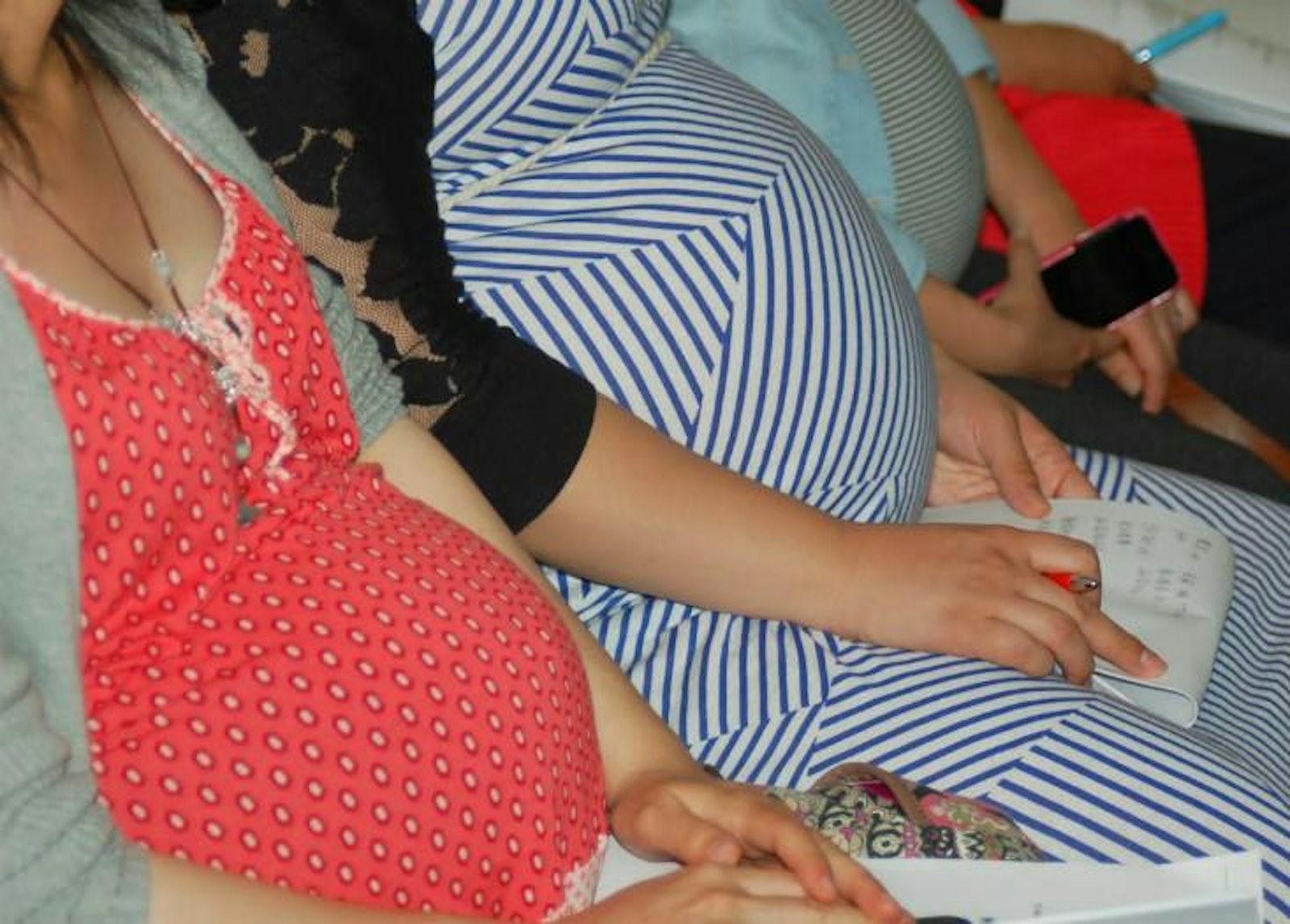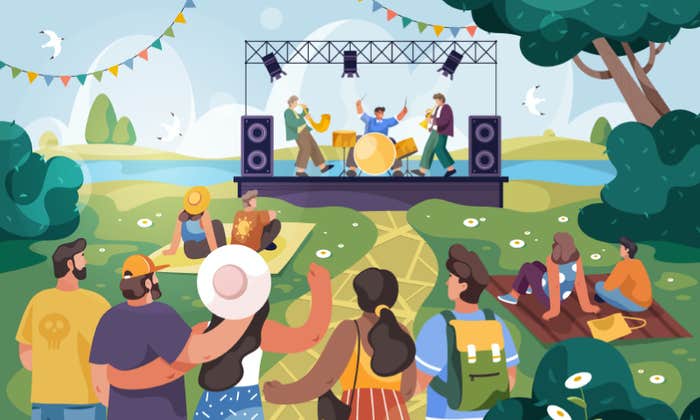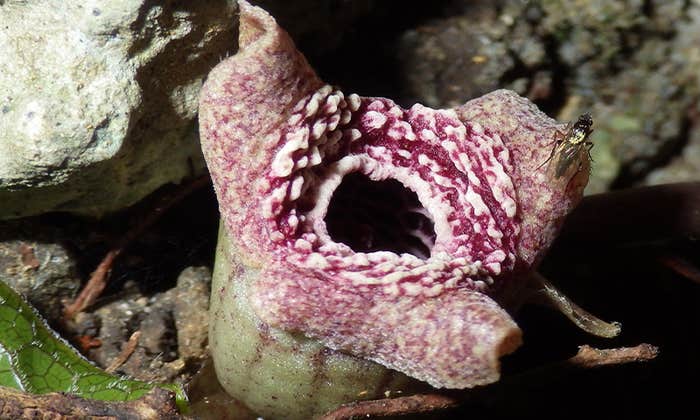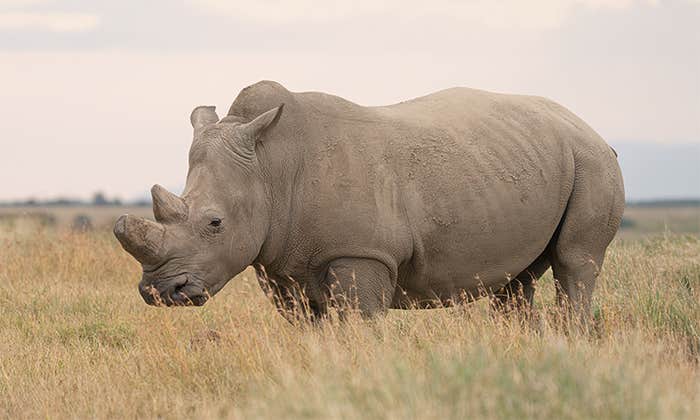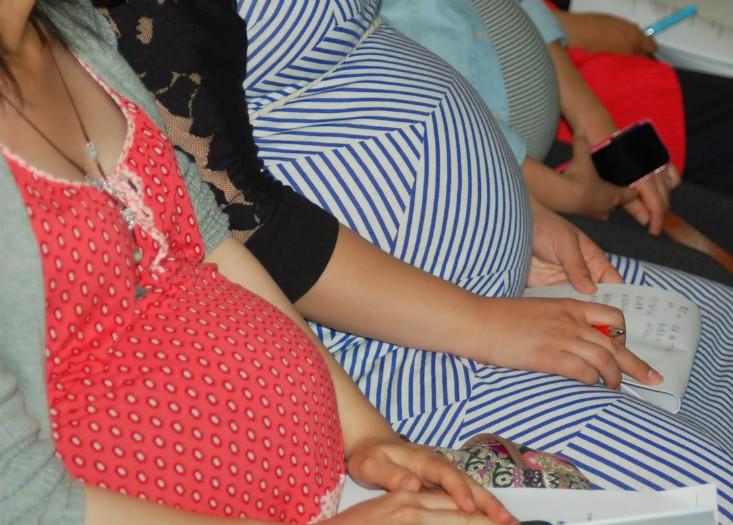
In a strip mall in the heart of Silicon Valley, the pregnant ladies were seeking out ancient Chinese cures.
Bellies low and wide, bellies high and round, the women packed into I-San House, sampling bitter chicken and goji berry soup and a tongue-tingling drink of boiled ginger and dates, traditional Chinese dishes to aid in recovery after childbirth.
In the month after delivery, Chinese women are said to be at their most vulnerable, weakened by labor and blood loss. To heal, they confine themselves at home for 30 days, in a process known as zuo yuezi, or “doing the month.” They stay in bed and slurp down pig knuckles stewed in wine and vinegar, and drink stinking herbal concoctions to flush out the body and increase the production of breast milk. Tradition prohibits visitors, baths, going outside, using fans or air conditioners, sexual activity, brushing teeth, eating raw foods, reading, or crying—as though they were living in the Ming Dynasty, without the benefit of indoor plumbing, clean hot water, or modern medicine.
Research on confinement suggests that it has some benefits, as well as costs. Even in an era of rapid social change, the practice of confinement has remained widespread in China, in the city and the countryside, among rich and the poor, and in many parts of the diaspora.
“In times of doubt and uncertainty, in the transition to motherhood, you turn to folk tales,” said Eleanor Holyrod, a medical anthropologist and registered nurse at the RMIT University in Melbourne, whose studies found that women believe confinement restores health and prevents future illness. “It’s a way for family members to look after other family members. Confinement isn’t about being excluded but included.”
Centuries ago, confinement probably arose to ward off infections such as maternal tetanus, caused when spores in the soil came into contact with genital lacerations on the mother’s body. Soil kicked up from dirt floors, by animals living in the home, could have led to the practice of seclusion, according to Reproducing Women: Medicine, Metaphor, and Childbirth in Late Imperial China, by Yi-Li Wu. Sun Simiao, a 7th-century physician known as China’s King of medicine, warned that women who didn’t strictly follow postpartum rituals could develop “childbirth windstrike” when “her body arches backwards and is forced rigidly, like a horn bow being pulled backwards”—a clear reference to the disease known as “lockjaw” in English.
Pregnancy, labor and delivery, and the postpartum period put women in peril, giving rise to precautions that gave them a sense of control, such as orienting the birthing room, charms and rituals, and burying a placenta, according to Wu, a medical historian.
In preparation for the arrival of our twins, my husband and I learned how to swaddle, diaper, and bathe a doll, and I read the latest research in pregnancy and child-rearing. Very little dealt with my recovery at home, but I was confident it wouldn’t take long. “In the modern world, having a baby is like having a tooth pulled. You should be working right up until delivery and then back on your feet,” said Wu.
Celebrities who show off their flat bellies days after giving birth, and Marissa Mayer, Yahoo’s CEO who worked through her maternity leave of a few weeks, all contribute to the American notion that mothers should bounce back quickly. Wu says the modern view of nearly-instant recovery is “an anomaly. In the West, we’ve gotten rid of the idea that postpartum recovery requires certain care, but that idea has never been erased in China.”
Doctors induced me three and a half weeks early, because I’d developed pre-eclampsia, a dangerous rise in blood pressure. A couple hours after giving birth, I fainted the first time I stood up. Dizzy and weak, I hadn’t eaten or slept for more than 24 hours, and my blood pressure remained high. Within 48 hours, a nurse ushered me through discharge papers that I shakily signed, including a single sheet of postpartum care: sitz baths, supportive bras, and warning signs of postpartum depression. It wasn’t until I barely had the strength to get into the car did I realize how weak I’d become.
After my mother gave birth to me, she’d marveled that her American roommate in the hospital got up and showered. “For some women, having a baby is like laying an egg,” she said. “They can lay another one the next day.”
I felt more like a hen who’d been run over trying to cross the road, but not once did I consider any aspect of confinement. I wasn’t going to entrust my health to cobwebbed superstition. I figured out how to type over the twins’ heads while they nursed on a bulky pillow I strapped around myself like a life preserver. I wore wrist braces, my fingers stiff and numb, due to pregnancy-induced carpal tunnel syndrome. Sleep-deprived, I found it difficult to complete a thought, let alone a page, but I had stories to finish and submit. Trying to get back in shape, I followed post-natal exercise videos and did modified push-ups and leg lifts that left me sprawling. When family and friends dropped off meals and good wishes, I was exhausted and sometimes wished I could hide.
Like me, Guang Ming Whitley had a culturally assimilated upbringing in the United States. She went into seclusion after her three pregnancies—30 days each for her singleton son and daughter, and 55 days for her twin boys, now toddlers. She wanted to avoid what happened to her mother, decades earlier: speechless and staring at the wall, ignoring her crying baby while in the throes of postpartum psychosis—a severe form of postpartum depression—due to exhaustion.
At Whitley’s request, her mother researched the practices and together they developed “commandments”: Whitley received no visitors, and allowed herself only 10 minutes a day of talking on the phone or surfing the Internet. She showered every day, but only in a steamy bathroom and drying off completely. She swallowed bitter shots of herbs boiled for eight hours and patted her neck 30 times, one the few exercises she could do while reclined in bed.
“I felt a little silly, but I’d decided I was going to do it,” Whitley said, an Alaska attorney-turned-author who penned the guide, Lockdown: An American Girl’s Guide to Chinese Postpartum Recovery, after the confinement period and in the middle of the night while pumping breast milk for her twins. “A lot of it made sense. I felt like there was a science behind it. I had a parasite in my stomach leaching nutrients for nine months.” She ate liver for the iron content, pork feet for the gelatin, and kidney for trace minerals.
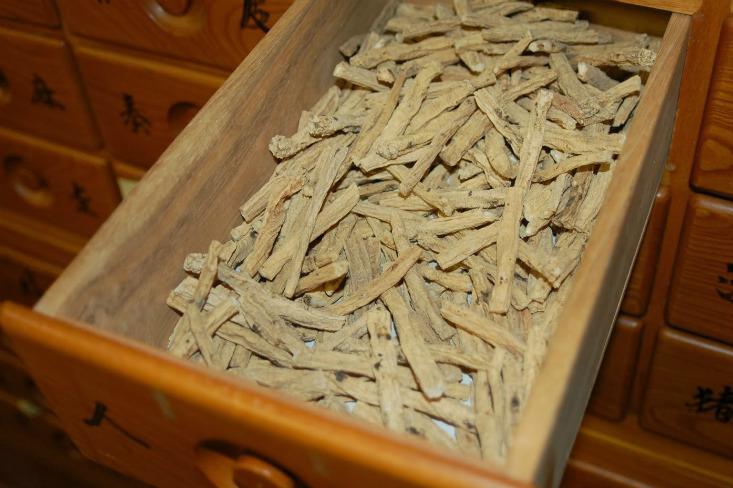
There is some scientific evidence that confinement can help new mothers. A landmark 1978 study by a medical anthropologist from San Diego State University of new mothers in Taiwan found confinement effective, restoring and maintaining health, with a strong impact on mental well-being and familial relationships, elevating a new mother’s social status in the household.
But confinement isn’t a panacea. A 2009 study by researchers at the University of Michigan and Peking University First Hospital found that about 15.5 percent of new mothers in Beijing suffering from postpartum depression—in line with rates from industrialized countries. Those who received care from their mothers-in-law and those who perceived their confinement had been unhelpful had twice the odds of developing postpartum depression, compared to women with favorable impressions of that period.
The first two weeks my twins were home, my mother-in-law stayed with us to help. Often in or near tears, I had no patience for myself, or the people around me. When my mother-in-law put snacks on top of the fridge, out of my reach—“To help you lose the baby weight”—I bit back my anger.
But I was also grateful, when she stayed with the twins while they napped, and I could take a walk with my husband. At first I could only get the end of the block, hobbling, my joints loose, but eventually, I could stroll around the park once and then twice. I’d questioned why confinement forbids such activity, and research bears out my misgivings. Last year, a study from Wuhan University and Case Western Reserve University found that confinement’s prescribed bed rest and inactivity took their toll on new mothers. At six weeks post-partum, new mothers, educated urban women from Hubei province in central China, had lower body strength that was comparable to a 60-year-old woman (calculated by the number of times that a person can come from a full stand to a full seated without using her arms). Their aerobic endurance scores were worse—testing how far they could walk in six minutes—with scores lower than those for 70-to-90 year old.
“If you’re in bed, you become very weak. That’s why you have those horrendous scores,” said co-author Judith Maloni, a professor emerita at the Case Western. “There’s a tremendous sense of support from being the focus of attention. But there are aspects that need to be changed: the nutrition, cleanliness, activity.”
A 2009 review of 16 confinement studies found that in half, certain practices offered some protection against postpartum depression, such as assistance with childcare. Four studies found confinement increased the risk of depression, with the practice leading to conflict as new mothers balanced traditional and contemporary values. (Four studies were inconclusive.) Confinement “shouldn’t be regarded as a homogenous commodity, with the same quality for every person,” said Jane Fisher, co-author of the review, and a professor of woman’s health at Monash University in Australia. “Let women pick the bits that fit for them, for their circumstances or needs. But this is not something every woman has a choice about.” The main benefits of confinement may indeed come from simply getting more rest and help with childcare, so are the more arcane rules about diet and the like necessary?
“If women were just told, ‘Rest!’ they wouldn’t do the trick,” said a physician in the Taiwan study in 1978. “So, many taboos and superstitions had to be developed and made an intrinsic part of the month to make certain that a woman would get sufficient rest and regain enough energy to resume and continue her work in good health.” According to the study, the physician and others like her told researchers they would prefer if women had a better understanding of postpartum physiology underlying optimal health practices. Lacking that knowledge, they say, new mothers should undergo confinement rather than disregard it.
As my twins became mobile, rolling, crawling, cruising in their first year, so too I returned to my work. Rushing didn’t speed my progress; it might have even slowed me down when I became frustrated. If only I spent more time in the first month touching the nub of their noses, kissing their tiny fingers, and stroking their velvet skin. If only I allowed myself some of the peace of confinement, a peace I no longer have these days and will not in the years to come. If only I lived as my sons did and still do: in the moment.
Vanessa Hua is a Steinbeck Fellow in Creative Writing at San Jose State University. Her fiction and non-fiction has appeared in The New Yorker, The Atlantic, The New York Times, and Zyzzva, among other publications; previously, she was a staff writer at the San Francisco Chronicle.















